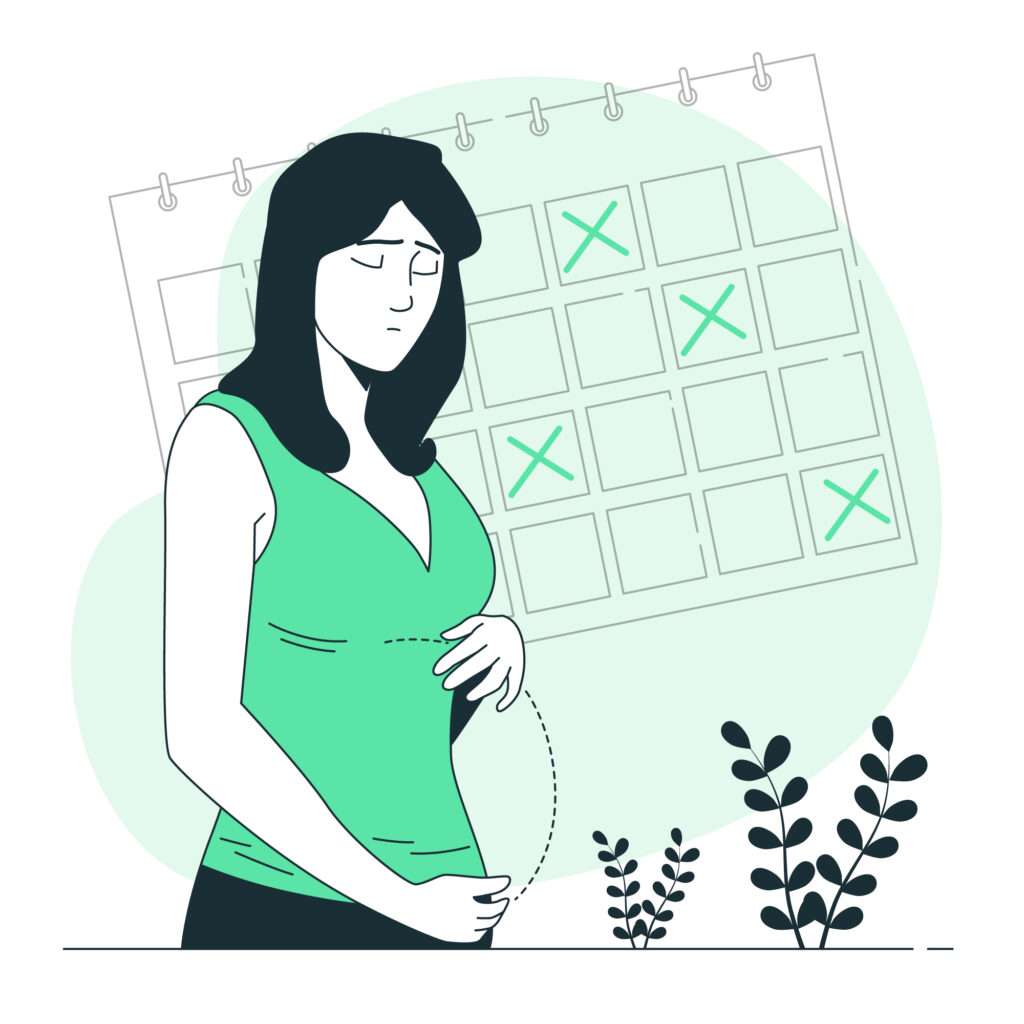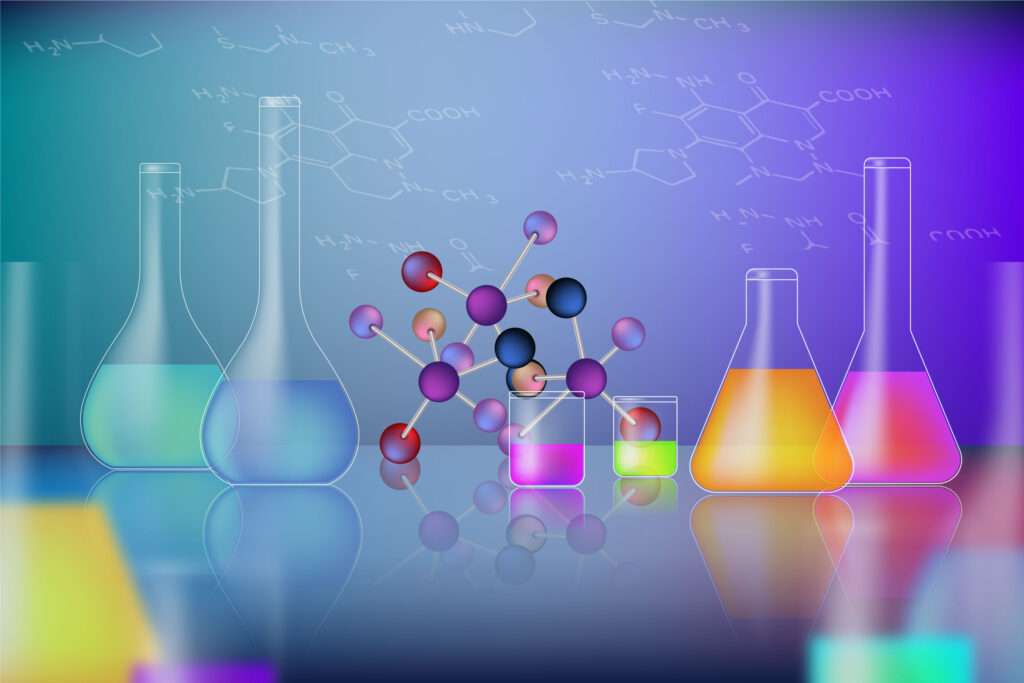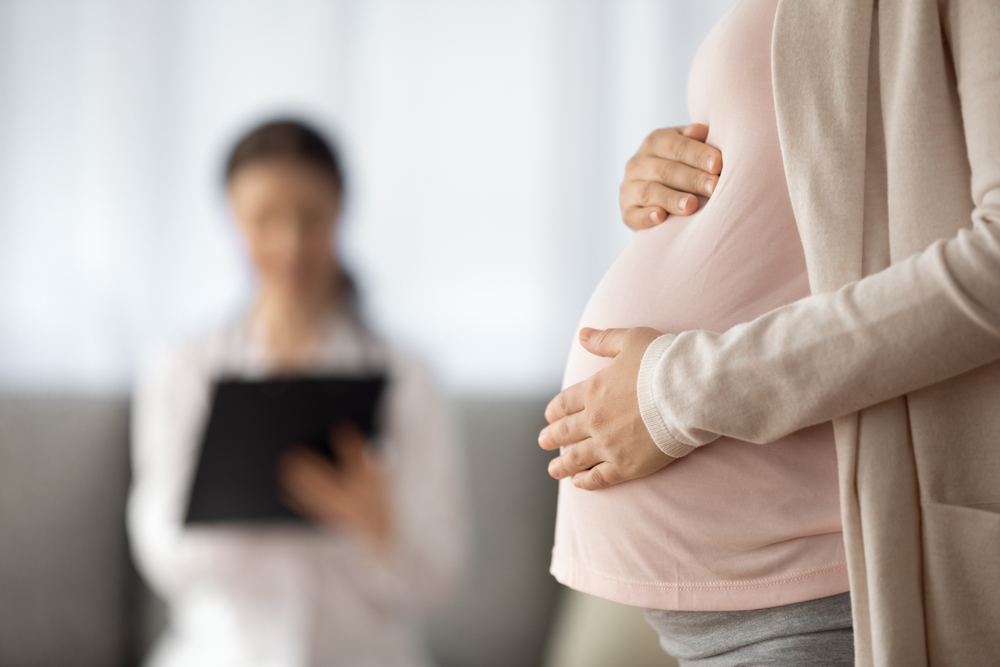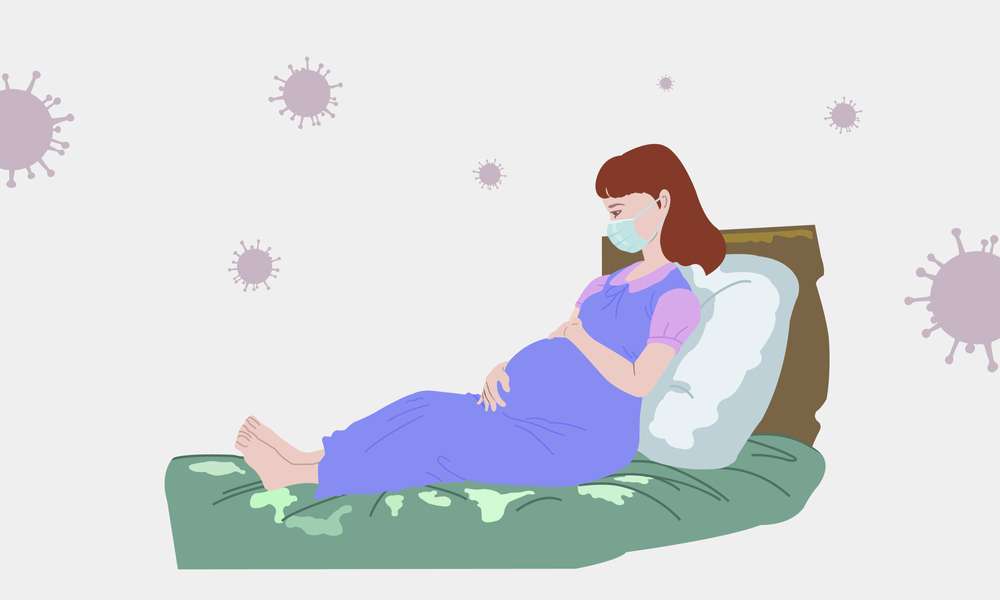Chemical Pregnancy:
Chemical pregnancy occurs when the fifth week started, it’s a very early miscarriage. The bledding and cramping may last for few days. It happens when choromosomes are block of DNA, which contain instruction for baby development.
Chemical pregnancy Symptoms:
Chemical pregnancy symptoms can vary among women. Some will experience no symptoms at all. However, some women notice the following:
- A positive pregnancy test that can quickly turn negative.
- Light spoting
- Very high abdominal pain
- Vaginal bleeding
- Low hCG levels
Positive pregnancy test:
A positive pregnancy test, which suggests that you are pregnant, is the most prevalent indicator of a chemical pregnancy. However, in a healthy pregnancy, the pregnancy hormone hCG (human chorionic gonadotropin) may not rise as predicted.
Early bleeding:
Many women who have chemical pregnancies suffer from vaginal bleeding or spotting. This bleeding might be as light as a period and be followed by slight cramps.
Menstrual-Like Symptoms:
Some women may have menstrual-like symptoms such as stomach cramps, breast soreness, and mood fluctuations.
Shortend pregnancy symptoms:
If you’ve been keeping track of early pregnancy symptoms, you may have noticed that they vanish or don’t proceed as planned. Breast discomfort, weariness, and excessive urination are some of symptoms.
Low HCG levels:
The hCG levels in a chemical pregnancy may not rise as quickly as they should in a healthy pregnancy. A blood test that measures hCG levels over time can assist with detecting this.
Negative pregnancy test:
A chemical pregnancy may result in a negative pregnancy test soon after a positive one in rare situations. This might indicate that the pregnancy did not progress.
Chemical pregnancy signs:
A chemical pregnancy is a miscarriage that occurs quickly after implantation, typically before a woman recognizes she is pregnant. As a result, the signs and symptoms of a chemical pregnancy can be subtle, such as:
- Positive Pregnancy Test: A positive pregnancy test is one of the most typical indicators of a chemical pregnancy. This indicates that a pregnancy was discovered using a home pregnancy test or a blood test because the body released the hormone human chorionic gonadotropin (hCG) in response to implantation.
- Vaginal Bleeding: Some people who have a chemical pregnancy experience light vaginal bleeding or spotting. This bleeding can be confused with a light period.
- menstruation-Like Cramps: In certain circumstances, mild stomach cramping akin to menstruation cramps may develop.
- Menstrual Cycle Shortening: A chemical pregnancy can result in a somewhat shorter menstrual cycle. In other words, a woman’s menstruation can arrive a few days sooner than usual.
- There are no other pregnancy symptoms: Chemical pregnancies, in contrast to later-stage pregnancies, do not often generate major pregnancy symptoms such as breast soreness, morning sickness, or fatigue since the pregnancy is very early and may not have advanced far enough to induce these symptom
Why it happens?
It is thought that chemical pregnancies occur for similar reasons to many other miscarriages. The most common cause is likely to be chromosomal problems with the developing baby and these are usually random, ‘one-off’ problems.
Feel upset?
Any treatment for chemical pregnancy ?
No need for medical treatment. These early miscarriage happens at early stage then they generally resolve naturally and you will recover quickly.
Obivate Chemical pregnancy:
Changes in Lifestyle and Preconception Care Can Help Prevent Chemical Pregnancy
This content proposal seeks to educate readers on the significance of preconception care and lifestyle modifications in avoiding chemical pregnancy. It will give readers practical advice on how to improve their overall health and their chances of having a good pregnancy.
What Causes a Chemical pregnancy?
While the actual cause of chemical pregnancy is unknown, possible causes include a difficulty with the embryo’s genetic makeup or DNA, or a problem implanting into the uterine lining. In either event, the embryo’s development halts, as does the synthesis of the hCG hormone that keeps a pregnancy going. While it is hard to predict who will have a miscarriage, risk factors for early miscarriage include individuals who:
- Are 35 year age or older
- Have a uterus that is unusually formed
- Do you have hormonal imbalances?
- Do you have a STI?
- Have you been diagnosed with polycystic ovarian syndrome (PCOS)?
- Do you have diabetes?
Chromosomal Abnormalities:
Chromosomal abnormalities in the embryo are one of the most common reasons of a chemical pregnancy. Because of these anomalies, the pregnancy is unable to progress. Such anomalies are usually the result of random occurrences that occur during fertilization or early cell division.
Hormonal Imbalances:
Hormonal imbalances can impair the embryo’s capacity to implant and develop appropriately. Inadequate amounts of the hormone progesterone, which is essential for supporting early pregnancy, can be a cause.
Maternal Health issues:
If not effectively handled, certain maternal health issues, including as thyroid abnormalities, polycystic ovarian syndrome (PCOS), and poorly controlled diabetes, might increase the risk of a chemical pregnancy.
Uterine Abnormalities:
Uterine structural abnormalities such as fibroids, polyps, or an irregularly shaped uterus can disrupt implantation and the early stages of pregnancy.
Risk factors:
Factors such as smoking, strong alcohol consumption, drug usage, and excessive caffeine consumption can all significantly raise the risk of chemical pregnancies.
Age:
The maternal age can be a factor. Women in their forties and fifties may be at a little higher risk of having chemical pregnancies, as egg quality declines with age, perhaps leading to more chromosomal abnormalities.
Infections or Immunological Factors: Infections or immune system reactions can disrupt embryo implantation and development.
Signs of chemical pregnancy at 4 weeks:
A 4 week pregnancy is a very early pregnancy loss that happens quickly after the fertilized egg adheres to the uterine lining. You may encounter signs and symptoms comparable to those of a typical early pregnancy at this period, but they may be less apparent or vanish rapidly. At 4 weeks, signs of a pregnancy may include:
Positive Pregnancy Test:
A positive pregnancy test is the most prevalent indicator. A positive result from a home pregnancy test indicates the presence of the pregnancy hormone hCG.
Mild Vaginal Bleeding:
Some women may have minor vaginal bleeding or spotting during or immediately after their expected period. This bleeding is akin to a light period.
Mild vaginal bleeding:
Mild stomach discomfort, comparable to menstruation cramping, may develop. These cramps might be painful, but they are rarely severe.
Breast Changes:
You may experience some breast discomfort or sensitivity, however this symptom varies from person to person.
Changes in Pregnancy Symptoms:
If you have been experiencing early pregnancy symptoms such as nausea, breast changes, or exhaustion, you may discover that these symptoms do not proceed as expected or begin to subside.
Short-Term Symptoms:
One of the distinctive characteristics of a chemical pregnancy is that the signs and symptoms are frequently transient. You may have a positive pregnancy test, but after a few days or a week, you may have a bigger flow and the symptoms will go away.
What You Need to Know About the Relationship Between Lifestyle Factors and Chemical Pregnancy?
This content proposal might investigate the role of lifestyle variables including nutrition, exercise, and stress in the occurrence of chemical pregnancy. The article might go through the most recent studies on how these things can alter a woman’s fertility and raise her chances of having a chemical pregnancy. It may also offer practical advice on how to make lifestyle changes that will enhance general reproductive health and lower the likelihood of chemical pregnancy.
What You Should Know About Fertility Treatments and Chemical Pregnancy?
The association between fertility treatments and artificial pregnancy might be the topic of this content suggestion. The article might go through the many types of fertility treatments available, their success rates, and the dangers of chemical pregnancy connected with each. It may also advise you on how to select the best reproductive therapy for you and how to deal with the emotional effect of a chemical pregnancy diagnosis.
Tips for getting pregnant after chemical pregnancy?
A chemical pregnancy can be emotionally draining, yet many women go on to have successful pregnancies thereafter. Here are some suggestions to help you conceive again after a chemical pregnancy:
- Allow yourself the time and space to grieve and digest the loss’s emotions. Coping with the loss of a pregnancy can be difficult, and it is critical to seek emotional support from friends, family, or a therapist if necessary.
- Consult your healthcare practitioner about your plans to try to conceive again. They can give you advice, perform a preconception checkup, and make sure you’re in good enough health for another pregnancy.
- Keep a allert eye on your menstrual period. To enhance your fertility, you must trace your cycle and identify your ovulation.To increase your chances of pregnancy, you must follow your cycle and identify your ovulation. To assist with this, you can utilize ovulation predictor kits or fertility tracking apps.
- A healthy lifestyle can boost your overall fertility and increase your chances of having a successful pregnancy. Maintain a healthy diet, engage in regular exercise, get enough sleep, and manage stress.
- Start taking prenatal vitamins before you become pregnant to ensure you have the nutrition you need for a healthy pregnancy. Folic acid is very crucial during the early stages of embryonic development.
- If you smoke, drink alcohol, or use recreational drugs, you should think about quitting or limiting your consumption. These drugs have the potential to harm fertility and pregnancy.
- Caffeine consumption has been linked to a slightly higher risk of miscarriage. Consider lowering your caffeine consumption or switching to decaffeinated beverages.
- Fertility problems can occur in both underweight and overweight people. Maintain a healthy weight through nutrition and activity.
- Limit your exposure to environmental pollutants and substances that may have an impact on fertility and pregnancy. This involves avoiding hazardous substances and radiation.
- Intercourse at regular intervals around your ovulation window can improve your chances of conception. Your healthcare practitioner or a fertility specialist can advise you on the optimum time to get pregnant.
- It can take time to conceive again after a miscarriage. It is critical to be patient and optimistic while trying to conceive.
- If navigating another pregnancy try after a chemical pregnancy or any form of pregnancy loss is emotionally difficult for you, consider joining a support group or obtaining professional counseling. During this time, emotional support can be extremely beneficial.
Conclusion:
A (chemical) pregnancy is a word that refers to a very early pregnancy loss that happens before significant fetal development has occurred. While it might be emotionally upsetting, it is usually not a symptom of long-term reproductive issues, and many people who have a chemical pregnancy eventually have healthy pregnancies. If you have worries or questions regarding a chemical pregnancy, you should seek the advice and assistance of a medical practitioner or a healthcare provider.





